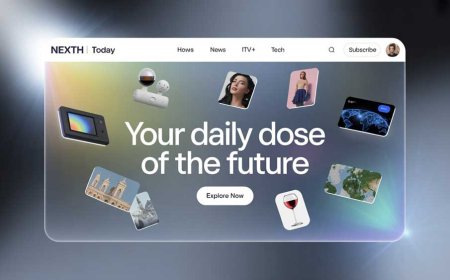Sharism and Healthcare: How Sharing Is Transforming Health for Everyone
Discover how Sharism is revolutionizing healthcare through secure data sharing, global collaboration, and empowered patients. Real cases, real impact.

We live in an increasingly connected world where sharing has become part of our daily lives — from social media posts to apps and digital platforms. But what if this spirit of sharing, known as Sharism, entered the healthcare sector? Could it truly change how we care for ourselves and others?
What is Sharism?
Sharism is a simple yet powerful idea: the more we share information, ideas, and resources, the more value we create for everyone. It’s not just about putting content online; it’s about collaborating openly and transparently to advance knowledge and innovation.
The Healthcare World: A Sector in Need of Reinvention
Healthcare is one of the most complex and sensitive fields worldwide. Hospitals, clinics, doctors, labs, research institutions, pharmaceutical companies, and, of course, patients interact in a vast and complicated system.
Often, however, data is fragmented, stored in separate databases, and hard to share or cross-reference. This slows down diagnosis, research, and access to personalized care. Poor communication between specialists and the lack of informed patient participation are obstacles that make healthcare less efficient and more expensive.
How Sharism Can Change All This
1. Secure Sharing of Health Data
Imagine if a patient’s clinical information could be securely shared among doctors at different hospitals, researchers, and even patients themselves — always respecting privacy rules. This would allow for:
- Faster and more accurate diagnoses thanks to more comprehensive clinical and genetic data.
- Personalized therapies based on real-time, up-to-date data.
- Better prevention and monitoring of chronic diseases through connected devices (wearables).
Real case: The CancerLinQ platform, developed by the American Society of Clinical Oncology, collects and shares anonymous data from cancer patients to improve care quality. Through this network, doctors can access experiences and outcomes from thousands of similar cases, improving treatment decisions.
2. Collaboration Among Professionals and Open Research
Sharism also means creating networks of collaboration among doctors, scientists, and researchers worldwide. This helps to:
- Speed up the development of new drugs and therapies.
- Share protocols and best practices.
- Respond more effectively to health emergencies.
Real case: During the COVID-19 pandemic, many researchers shared genomic data, clinical studies, and treatment protocols in real time. This openness accelerated the production of effective vaccines and therapies.
3. Empowerment and Active Patient Participation
Sharism changes the patient’s role, making them an active protagonist rather than a passive recipient of care. Thanks to digital platforms, apps, and online support groups, people can:
- Access reliable, up-to-date information.
- Share their experiences with others facing similar challenges.
- Monitor their own health and provide useful data to their doctors.
Real case: PatientsLikeMe is a platform where patients with chronic or rare diseases share data about their conditions, treatments, and symptoms. This sharing has led to important discoveries and improved many people’s quality of life.
4. Open Innovation and Health Technology
Sharism is also evident in collaborations between startups, universities, and tech companies working on open-source projects to develop innovative solutions such as connected medical devices, AI-assisted diagnostics, and software.
Real case: The OpenAPS (Open Artificial Pancreas System) project enabled diabetic patients to develop and share an open-source system for automated glucose management, greatly improving disease control.
Challenges to Overcome
The path is not easy. Privacy and data security are paramount, requiring advanced technology and strict regulations. There’s also a need to cultivate a culture of sharing that isn’t yet widespread among healthcare professionals. Overcoming distrust, educating professionals and patients, and building interoperable systems are essential steps.
A Future of Shared Health
Sharism offers an extraordinary opportunity to rethink healthcare, making it more open, collaborative, and efficient. Sharing and collaboration are no longer just buzzwords but real levers to improve people’s care.
Investing in sharism-driven healthcare means building a future where health is truly a collective good — accessible, personalized, and where technology meets humanity to create real value for all.
More information Sharism https://sharism.wiki - sharism.xyz
What's Your Reaction?



































